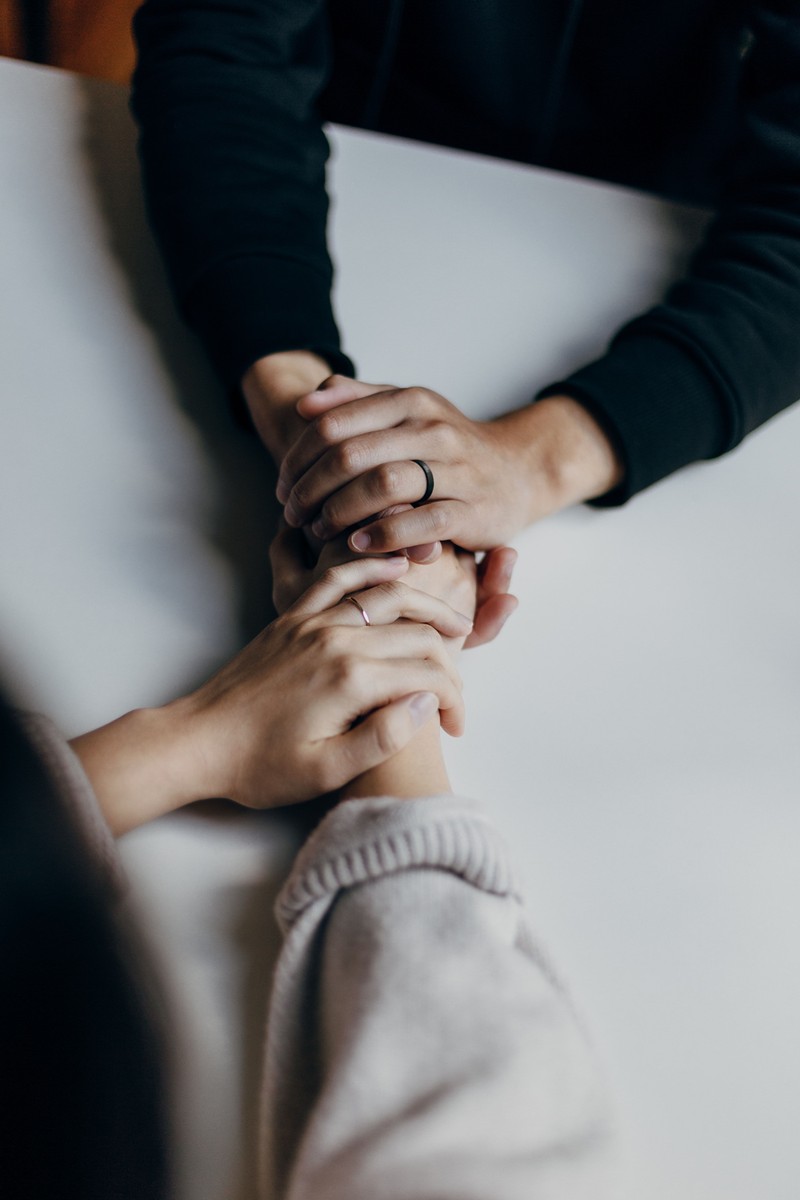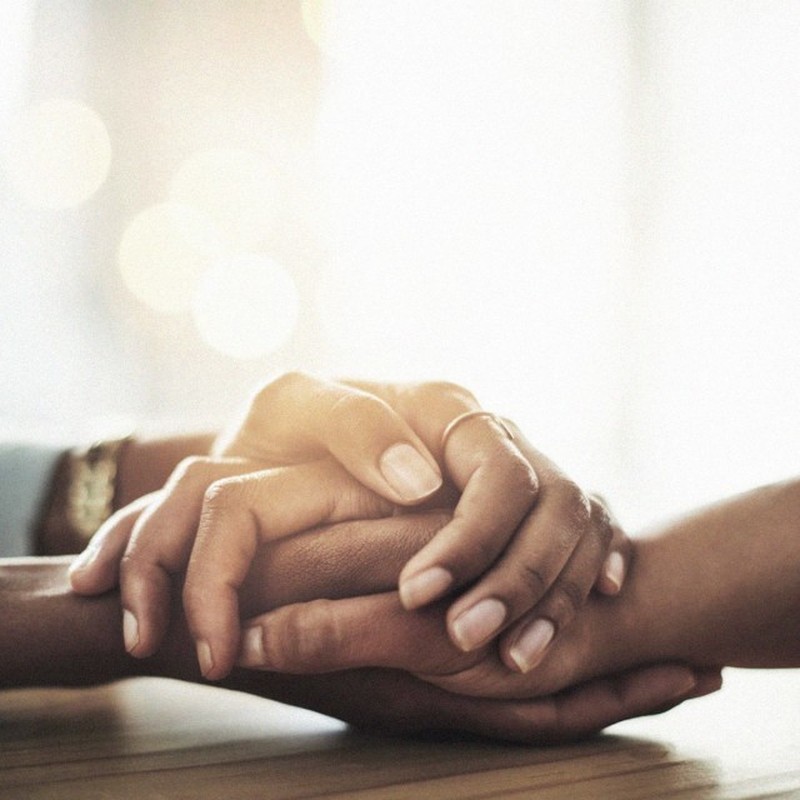How To Support A Friend With Cancer, According To Survivors
Educate Yourself
“Cancer treatment is a challenging journey for anyone, but it can be even more difficult without the appropriate support or understanding. During these trying times, it’s important to take the time to educate yourself on your friend’s specific cancer journey. This includes learning about the type of cancer they have, their diagnosis and what their current treatment plan entails. This will help you better understand what your friend is going through and, in turn, allow you to provide informed support with regards to their treatment decisions or preferences. Although each person’s experience with cancer is unique, having someone you trust who can empathise during this difficult process can make a world of difference.” – Donia Youssef, breast cancer survivor & author
Be Honest
“Don’t tell your friend that it’s all going to be okay. Unfortunately, at the time of diagnosis, neither you nor the professionals know this will be the case. Instead, be honest and tell your friend that you can’t possibly imagine what they are going through – unless, of course, you can. Tell them it will be tough, and it will most likely get harder before it becomes easier but tell them that you will be there for them through it all. Help them try and live a normal life – go out for drinks or book your favourite restaurant for dinner.” – Jess Bush, breast cancer survivor & founder of JJB Communications
Show Compassion Without Pity
“Supporting a friend with cancer doesn't have to be complicated; sometimes it's as simple as being there for them when they need it most. Also, remember that while your friend may need sympathy and understanding during this difficult time, they don’t want pity or unfounded optimism. Instead, show your affection through small gestures such as sending thoughtful cards, flowers, taking their children out and making them dinner when they don’t have the energy to cook for themselves. This shows that you are thinking of them without invalidating their current emotional state.” – Donia
Just Be There
“When a friend is diagnosed with cancer or is going through treatment, it can be tricky to know what to say. Often, something is better than nothing. When I was going through treatment, something as simple as a friend coming with me and holding my hand was enough. It’s the act of doing and just being with somebody that matters. If you can’t physically be with your friend during a treatment, sending something as small as an emoji shows you are thinking of them. When I was having treatment, I said to friends that I wouldn’t always be able to respond to messages but sending me an emoji would let me know they were there emotionally. This is also a time when you don’t want to be bombarded with messages, either, so the small things really do count.” – Meena Kumari-Sharma, ambassador for DKMS & currently in remission from blood cancer
Don’t Shy Away From It
“As someone who’s been on both sides of the coin – a lucky survivor of cancer and also a friend of friends who have had the diagnosis – one of the most important things I have learnt is not to shy away from cancer. So often, people feel they’ll say the wrong thing, or don’t know how to speak to someone who’s about to start chemo or radiation. What a friend needs most is to know you’re there, thinking of them and hoping for them, ready to deliver practical help if that’s needed. Cancer makes you feel alone. The bottom line? You want to know that you’re not.” – Janet Reibstein, breast cancer survivor & psychologist
Choose Your Words Wisely
“When I had cancer, people used language like, ‘You’ll beat this’ or ‘You’ll conquer this’, but it wasn’t helpful. Cancer isn’t something to be conquered or beaten, but rather understood. Instead, say something like, ‘I’m sorry to hear you are going through this. If you want to talk about it, I’m here’. I had friends come to appointments with me to take notes and support me, which was amazing. Offering to do that and show your friend they aren’t alone will always be appreciated.” – Ani Naqvi, stage 4 breast cancer survivor & executive coach
Don’t Compare
“Often when someone shares a health diagnosis, we jump into sharing a story about a friend, our family member or colleague who has been through something similar. I didn’t find this helpful when I was diagnosed. When you are in the middle of it yourself, it can feel overwhelming rather than helpful because everyone’s situation is different. At the point of diagnosis, you are merely trying to process it for yourself and figure out the next steps. Try to avoid doing this and listen to your friend to let them tell you what they do know.” – Ani
Set Up A Group Chat
“It can be tiring to always have to talk cancer, especially when it comes to updating different friends and relatives. I know friends who set up a WhatsApp group to share updates or used social media, meaning you only need to share the latest once. This also helps to know everyone has the same message – the cancer brain fog is real, and it can sometimes be tricky to remember who you’ve told what to.” – Kate Wilkins, ovarian cancer survivor & The Lady Garden ambassador

Be There On Treatment Days
“Treatment days are often long with lots of waiting and sitting around, either waiting for blood tests or having chemo administered. My biggest lifeline on these days was having friends and family on the end of WhatsApp, sending voice notes of encouragement or generally chit chatting to while away the time. My sister also made me some Spotify playlists to pass the time, which also served as a great distraction.” – Kate
Think About The Small Things
“In 2016, I was diagnosed with a brain tumour, just a year after losing my husband to cancer. Supporting your mental health is vital during any cancer journey, and knowing this as a friend is important, too. We are all different, but think about how your friend likes to spend her time – what are her hobbies and how does she relax? For example, for me, it’s listening to my favourite music, writing a diary or calmly cooking. Perhaps your friend is an avid gardener but is unable to get outside. In this instance, you could try creating a simple kitchen herb garden, which she could access easily and give her a little window into normality. Or perhaps your friend is a keen wild swimmer – she may benefit from a sandy stroll or light paddle. If she loves reading but is struggling to focus, find her a library of audiobooks and podcasts.” – Freyja Hanstein, brain cancer survivor & founder of Wholesome World
Take Another Path
“Chances are your friend is knee deep in treatment plans, surgery options and medical admin, so much so they’re not even thinking about the emotional or community support that they may need. As a patient, it often feels like you are on the cancer train, not sure of what the next stop has in store for you. As a friend you could scour social media for safe community spaces, find that blogger who is a few steps ahead on the ride, find the research that helps them better understand what they’re going through, and then, when the time is right, take them through your findings. Don’t be offended if they ignore everything you say – overwhelm is real when you have cancer.” – Kreena Dhiman, breast cancer thriver & ambassador for The Estée Lauder Companies UK & Ireland Breast Cancer Campaign
Remember They’re Still The Same Person
“One of the things I’ve noticed since my own diagnosis is that there’ll always be life before cancer, and life after it too. Sometimes, you’ll yearn for the before, and at other times you’ll be grateful for the after, but it’s always there, hanging in the background, a little reminder of how life can change in an instant. Don’t forget that your friend is still the same person – cancer or no cancer – and they still want to have a good time. Find out when their treatment will have the least side effects and book in an afternoon tea, arrange a staycation or go to the cinema. Do what you can to make them feel alive.” – Kreena
If your partner, family member, friend or colleague has cancer, there can be a lot to think about. You might be a carer, or just want to help. To help you navigate the practical, emotional and financial impacts of supporting someone with cancer, leading charities like Macmillan and Cancer Research UK can help. They can also help you look after yourself, and help you manage your emotions and relationships. Head to Macmillan.org.uk and CancerResearch.org for resources and support.
DISCLAIMER: We endeavour to always credit the correct original source of every image we use. If you think a credit may be incorrect, please contact us at info@sheerluxe.com.


